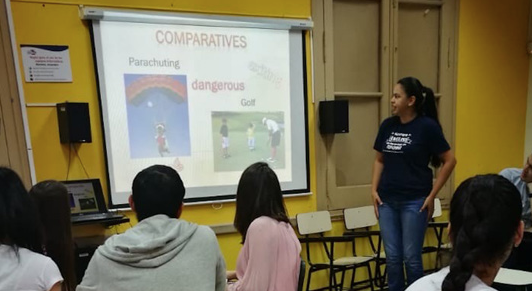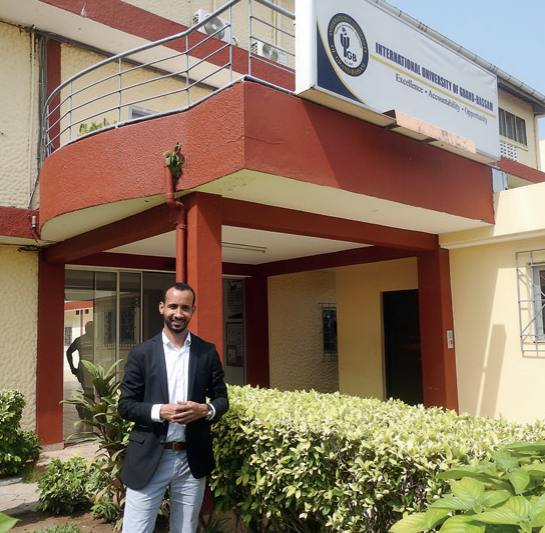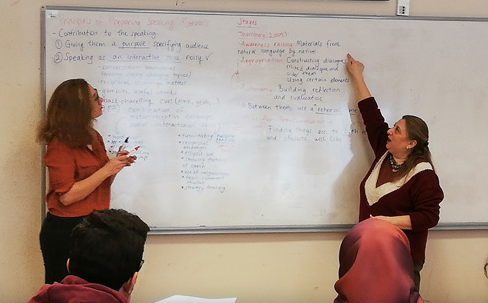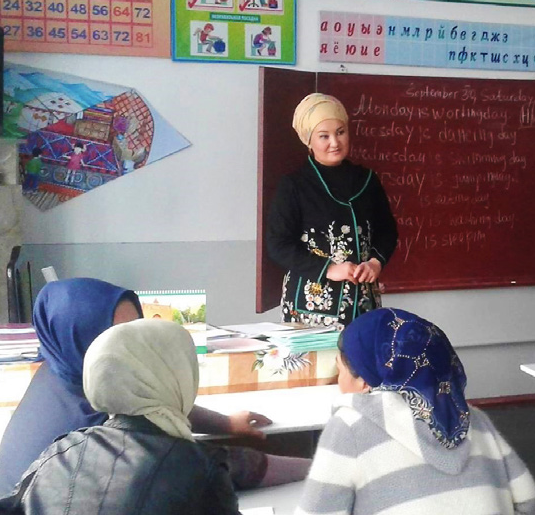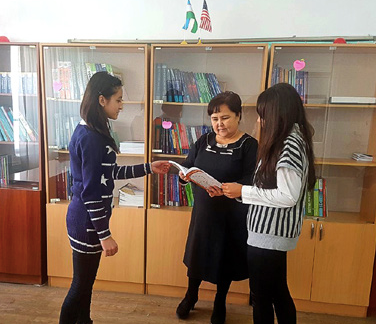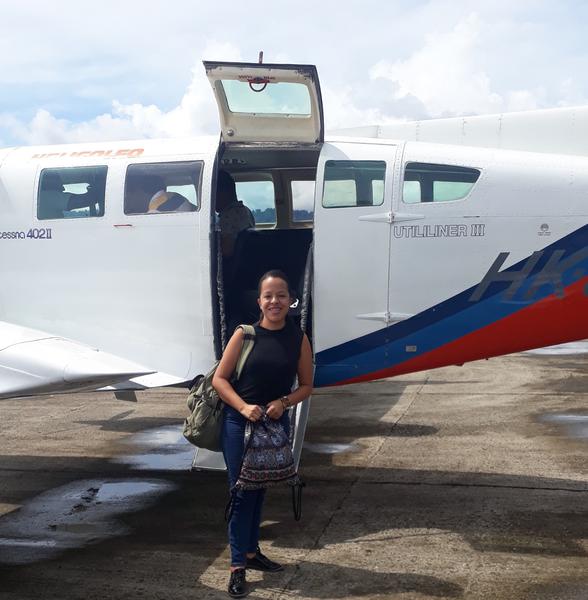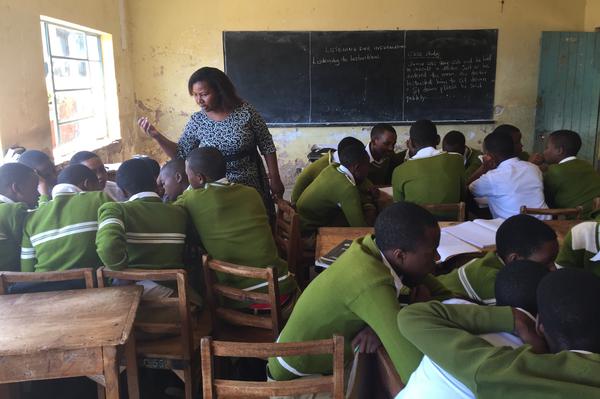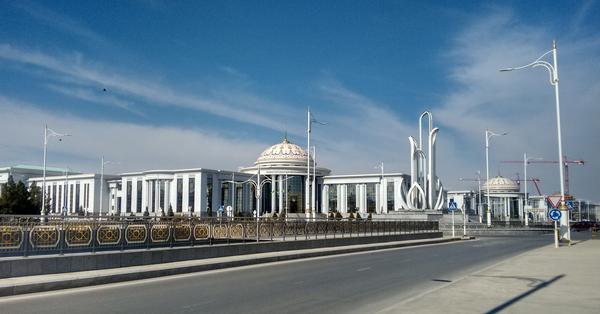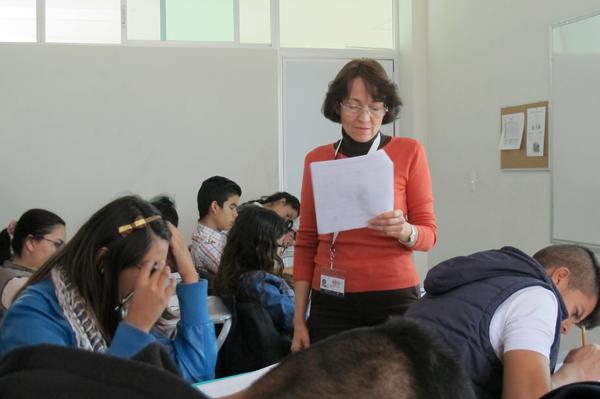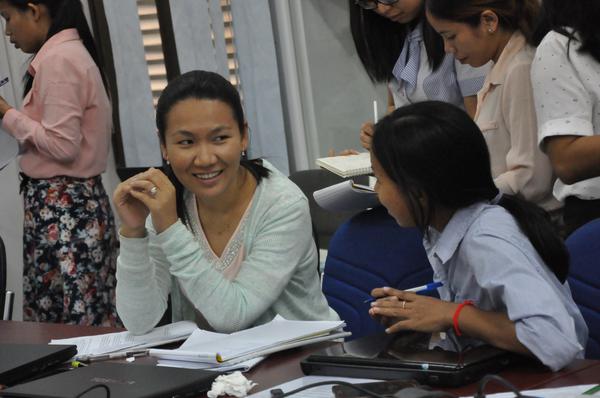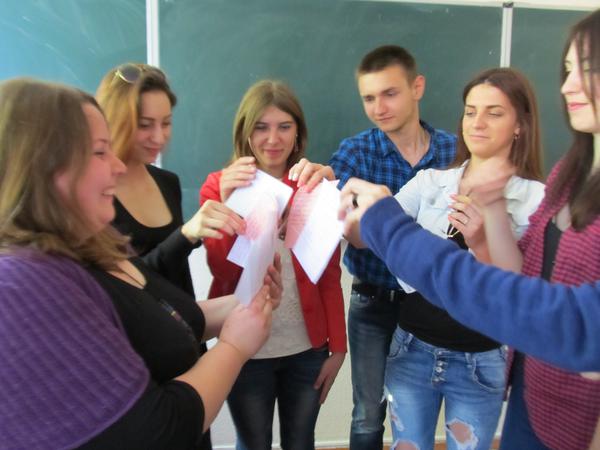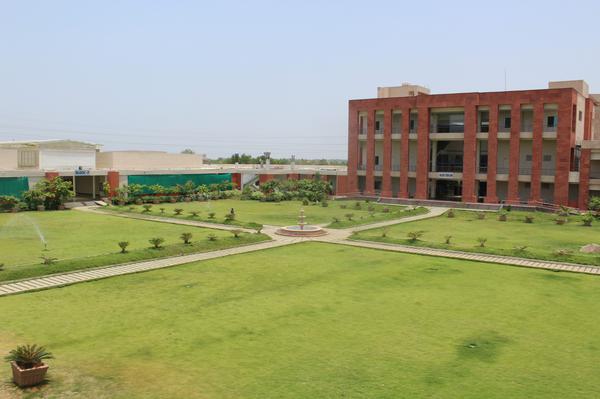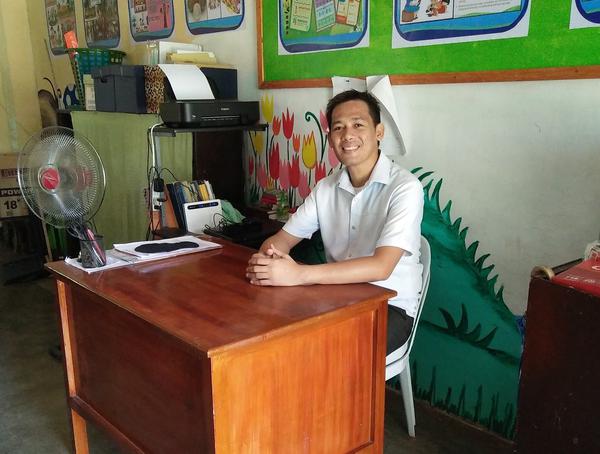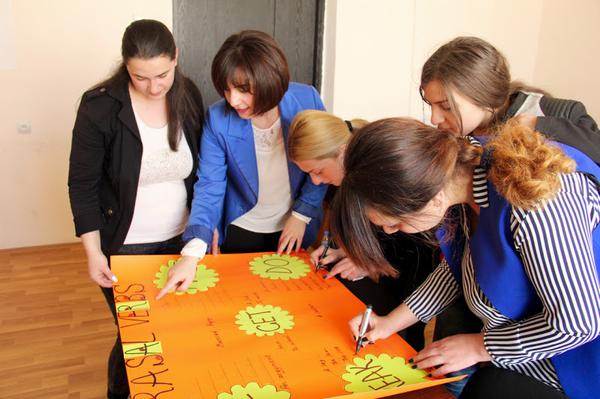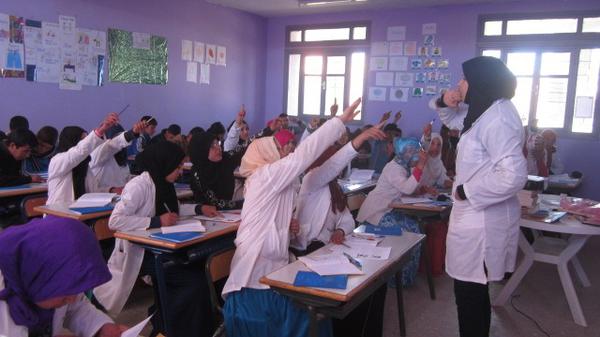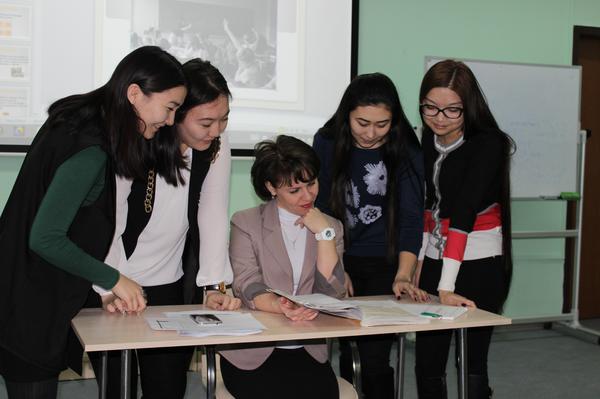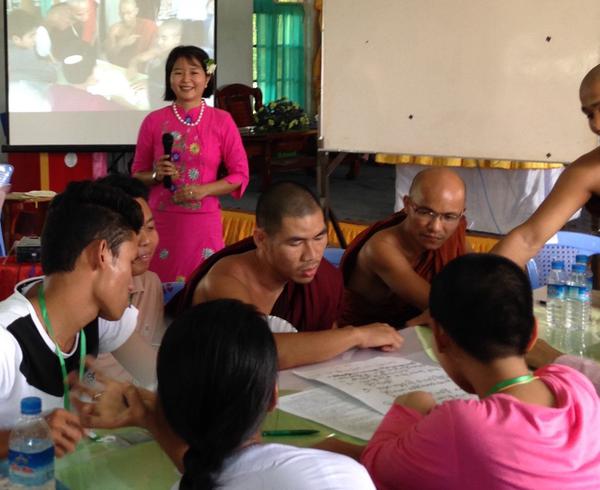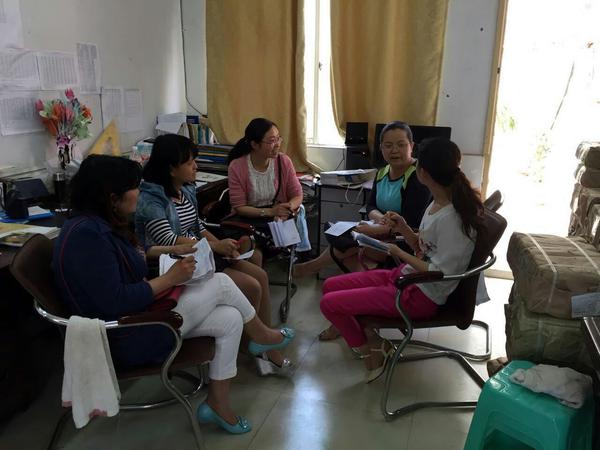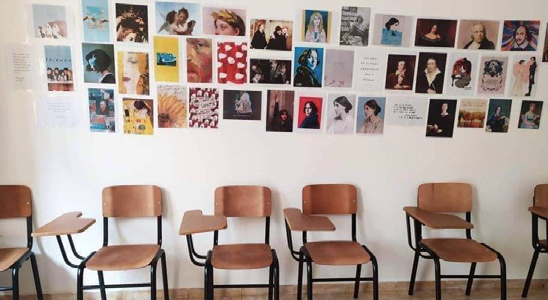
My Classroom: Libya
As far back as she can remember, Ms. Issa has
been fascinated with American and British
popular culture. She admits that her English
reflects what is often referred to as “Disney
language,” acquired from watching movies on the
Disney Channel and the Arabic language channel
MBC 3. She also reminisces about the joy she felt
singing songs and playing games in her primary school English classes that complemented her
learning. Yet she confesses that, in middle school,
when the focus of her classes turned to grammar,
she lost interest for a while, at least academically
